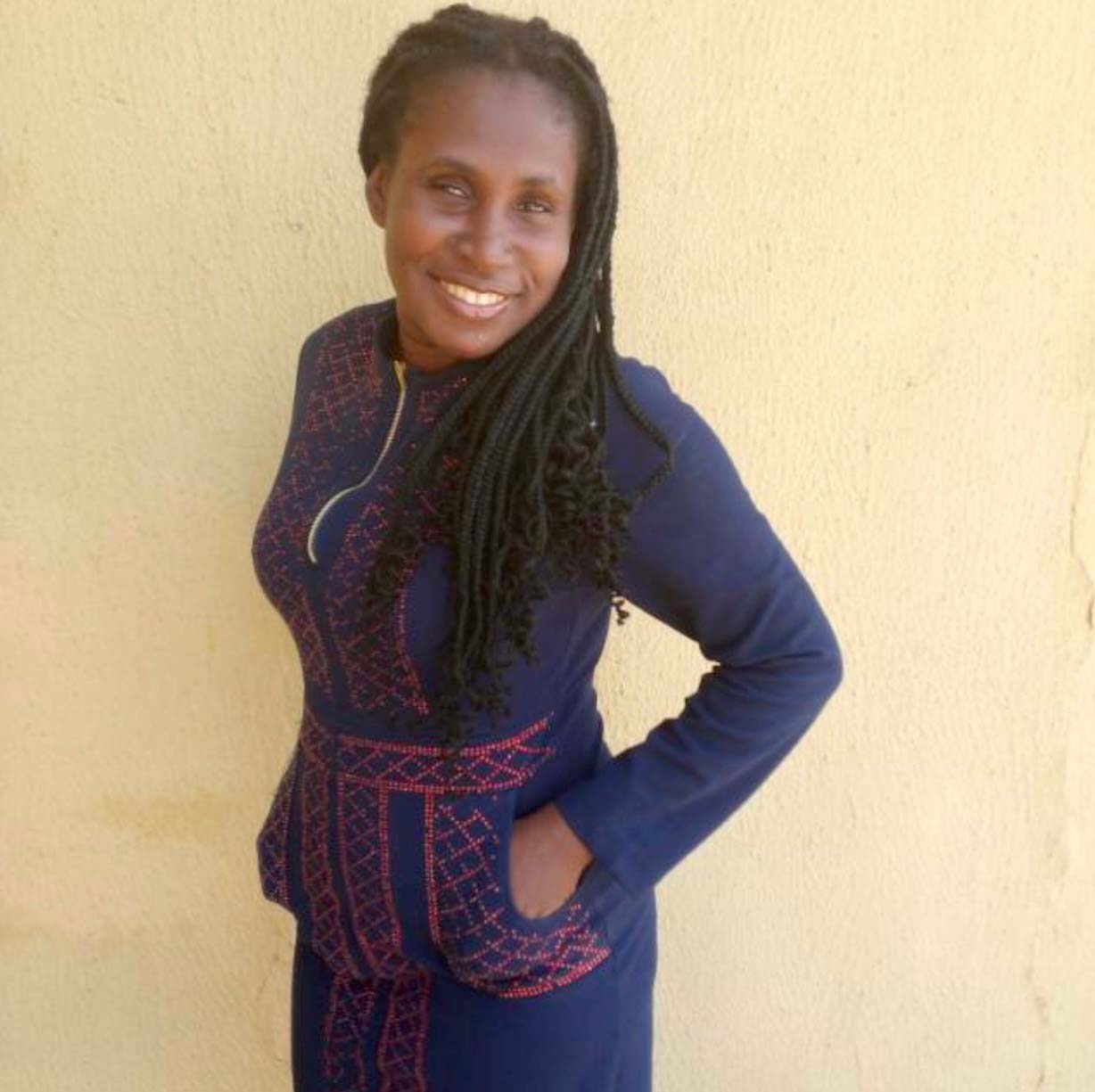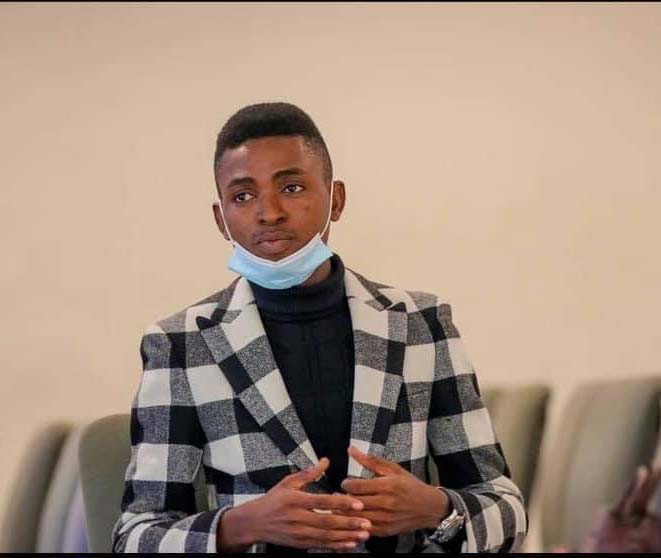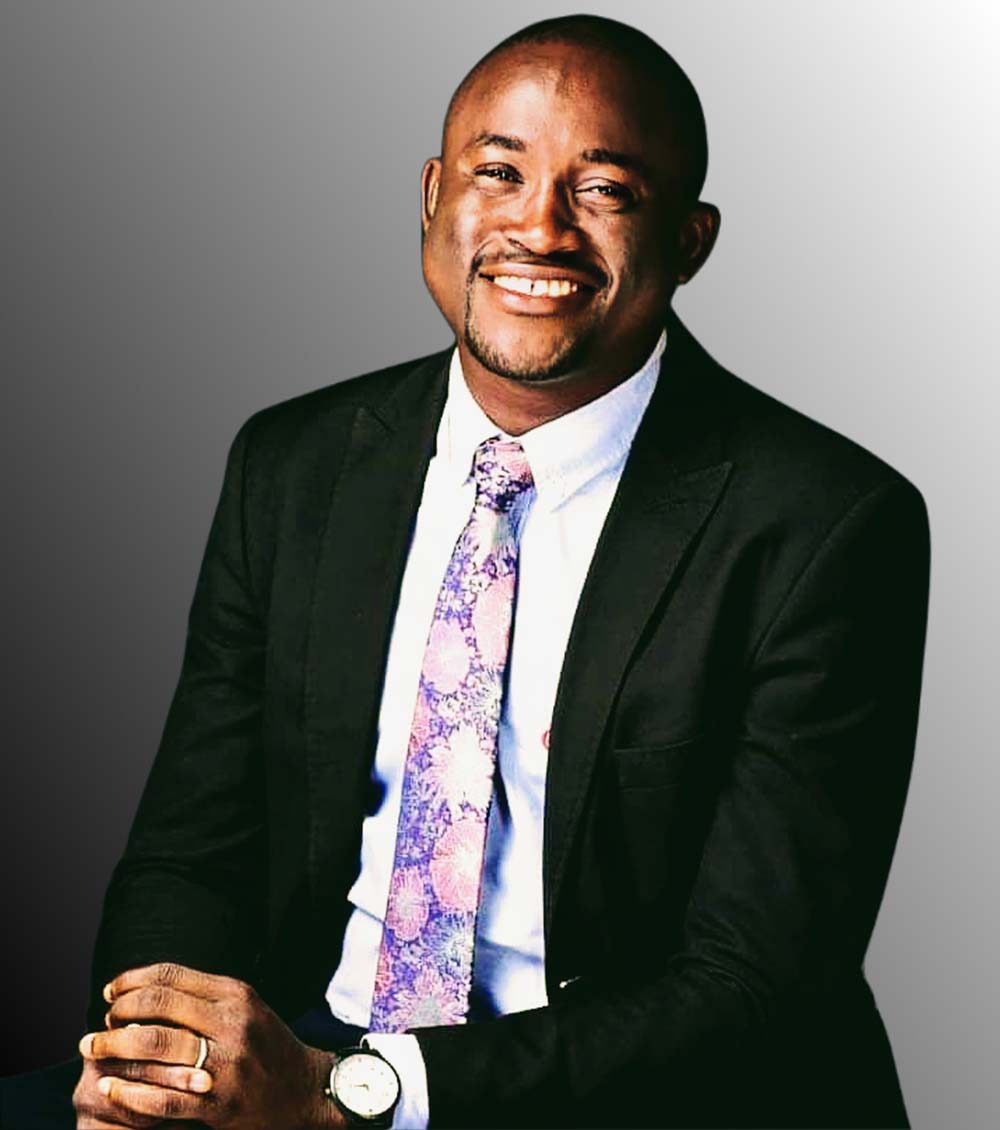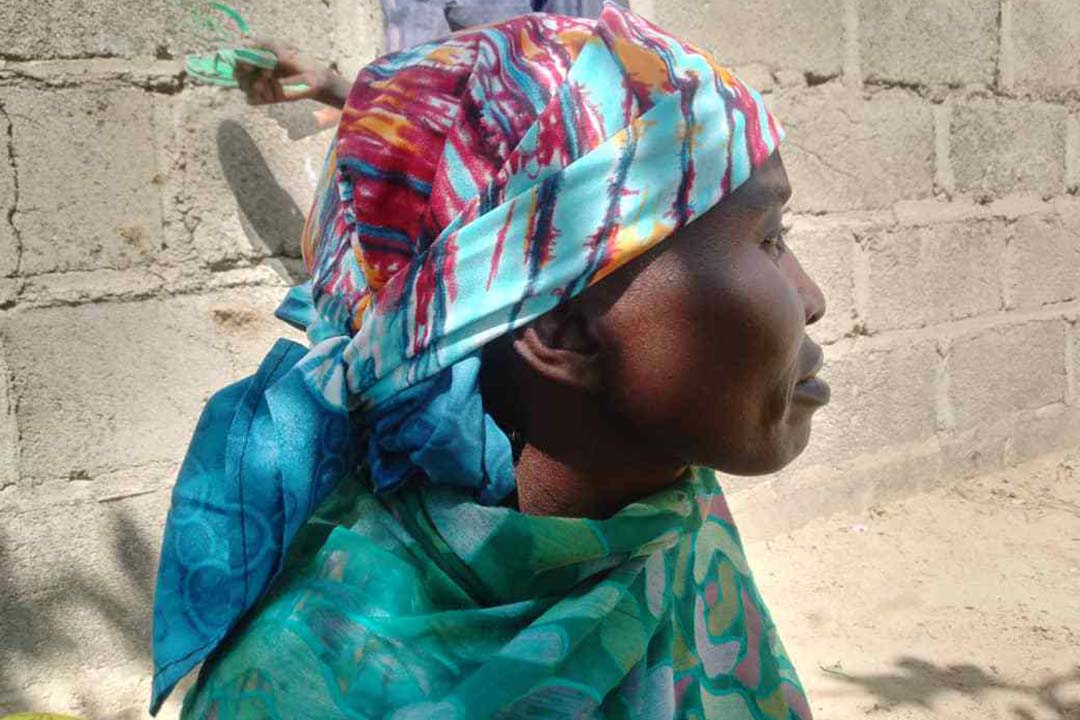Signs of progress: interpreters combat misinformation among Nigeria’s hearing-impaired
When a rumour threatened to derail COVID-19 vaccine uptake in Lagos’s hearing-impaired community, a small cohort of sign language interpreters stepped up to help them separate fact from fiction.
- 25 January 2023
- 5 min read
- by Jesusegun Alagbe

When a middle-aged hearing-impaired woman from the Idumota area of Lagos died last year, just days after she was vaccinated against COVID-19, her story went viral among the hearing-impaired community in the city, creating a panic that a similar fate would befall them if they too took the vaccine. That was when Oluwatobi Onaniyi, a well-known sign language interpreter in the city, was jolted into action.

Credit: Jesusegun Alagbe
Though she is not a health worker, she understood the implications of the misinformation being passed around, and decided she needed to do something to stop the spread. Her parents, both now deceased, were deaf, and she believed they would be proud of her continued service to the hearing-impaired.
"So I started meeting with them individually and in groups to educate them about the vaccine," she tells VaccinesWork. "I read information about the vaccine from the various health bodies such as the Ministry of Health and the World Health Organization (WHO), and I translated it into sign language."
“Many hearing-impaired have read the various misinformation and disinformation about the vaccine, but through partnerships with some health bodies, many have been enlightened and taken the vaccine.”
Samuel James, Chairman of the Association of Sign Language Interpreters of Nigeria (ASLIN), Lagos State
"No one needed to pay me or force me to do this," she says. "I know that the community is often neglected. So the need for the hearing-impaired to take the vaccine, so they can stay safe, drove me into enlightening them."
Onaniyi later found out through the close relatives of the hearing-impaired woman who had died, that after receiving the COVID-19 vaccine, she had consumed some traditional concoction without medical supervision.
"She had complications after taking the concoction and died afterwards. So her death was not related to the vaccine at all. I had to inform the hearing-impaired community about this and I kept on persuading them to go and take the vaccine. The enlightenment worked, because later when I went back, many had taken the vaccine," Onaniyi says.
Seeing the positive result of her work, Onaniyi says the government needs to do more to reach the hearing-impaired by engaging sign-language interpreters.
David Anyaele, the executive director of the Abuja-based non-governmental organisation, Centre for Citizens with Disabilities (CCD), tells VaccinesWork that in his view, the government is inadequately committed to making provisions tailored towards the hearing-impaired, as well as to other Persons with Disabilities (PWDs), in accessing COVID-19 vaccines.
He adds that insufficient knowledge of the needs and rights of PWDs among health administrators and health workers remain "big setbacks" to equitable access to COVID-19 vaccines.
Have you read?
Anyaele urges the National Primary Health Care Development Agency (NPHCDA), the governmental agency in charge of vaccine distribution across Nigeria, to remove all barriers for PWDs.
According to NPHCDA data, 55% of the eligible population targeted for COVID-19 vaccination have been fully vaccinated as of 10 January 2023, with an additional 11% partially vaccinated. Those national figures do not offer a breakdown of the number or proportion of hearing-impaired and other PWDs who have been vaccinated.
Although the Nigerian government enacted the Disability Law in 2019 to cater for the rights of PWDs, Abdullahi Usman Aliyu, the national president of the Joint National Association of Persons with Disabilities (JONAPWD), says more needs to be done to make vaccines accessible to them.
"We have a law in place regarding the rights of persons with disabilities, including the hearing-impaired, to access vaccines. Since the enactment of the [Disability] Law, have we seen the kind of results we want to see? Definitely no!" he says.
In the meantime, sign-language interpreters like Bayonle Olaoluwa, also of Lagos, are stepping up to bridge the lag between legal and real-world change. Olaoluwa, a colleague of Onaniyi, pledges to educate the hearing-impaired on the need to go out and take the vaccine.

Credit: Jesusegun Alagbe
"On my part, I have created many videos in sign language, posted to my social media pages and shared among the hearing-impaired, creating awareness and admonishing them to take the COVID-19 vaccine," he says.
But his efforts can only reach so far. Olaoluwa, who has worked at various health centres in the Surulere Local Government Area of Lagos State, says the key to improving vaccine uptake among the hearing-impaired is for the government to engage more sign language interpreters to reach them.
Samuel James, the Chairman of the Association of Sign Language Interpreters of Nigeria (ASLIN), Lagos State chapter, says he and other members of the association have been reaching out to the hearing-impaired to educate them on the need for COVID-19 vaccine intake.

Credit: Jesusegun Alagbe
"Generally, many hearing-impaired [people] have read the various misinformation and disinformation about the vaccine, but through partnerships with some health bodies, many have been enlightened and taken the vaccine," James says.
In an April 2021 policy brief on disability considerations for COVID-19 vaccination, WHO and UNICEF recommend that health care providers offer accessible, targeted information for persons with disabilities and their support networks. Recruiting persons with disabilities to work on the vaccination programme is helpful, they suggest – "they can be key vaccine messengers for other persons with disabilities and the entire community".
Twitter: @jesusegun1
LinkedIn: Jesusegun Alagbe









